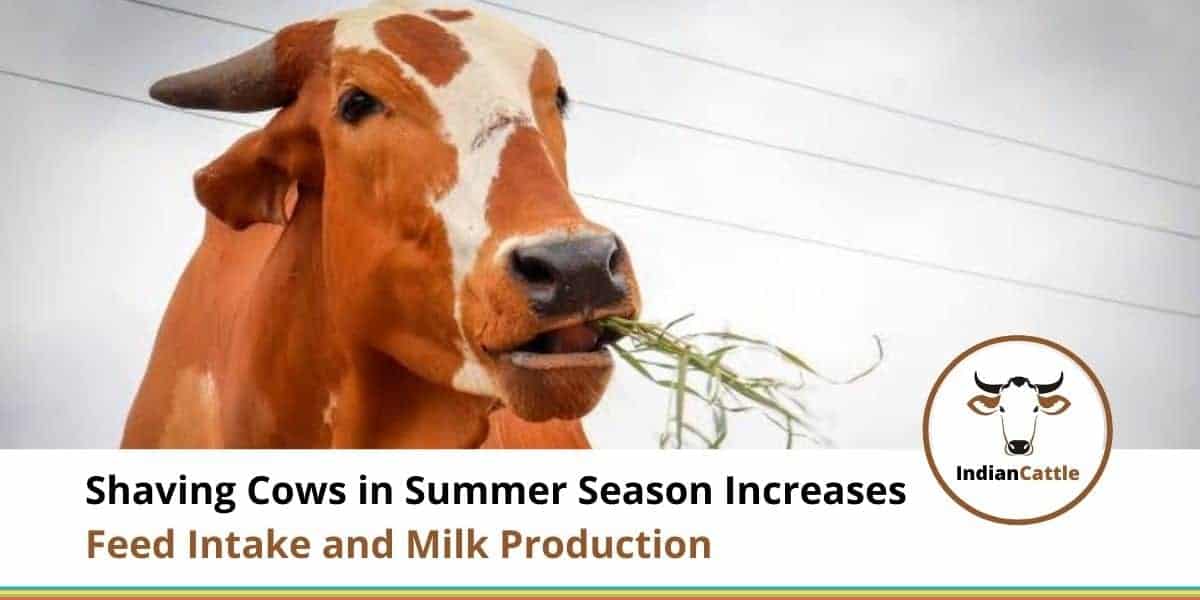
Shaving Cows in Summer Season Increases Feed Intake and Milk Production
As summer approaches men and young boys in rural India rush to a barbershop to cut their hair short or even shave it off completely, believing this will reduce the harshness of summer. This has also been found to be true in cows. Taking a clue from research that short-haired ‘slick’ gene-carrying cows have superior heat intolerance, researchers undertook a study to prove this point scientifically in cows. R. M. Mejia and others from Pennsylvania State University and a Zamorano University in Honduras carried out a simple experiment. Lactating cows with long hair were divided in two groups.
Cows in the first group were shaved close to their skin and cows in the second group were kept unshaven as a control. Both groups were maintained in the same barn on similar feed and with similar management. The rectal temperature of the cows was recorded every day at 2.00 PM. Milk production was recorded every day for 140 days post-shaving. The data was then analysed to understand the differences between the two groups. The results showed that in shaved cows, food intake was significantly better than in long-haired cows. Similarly, the average rectal temperature in shaved cows was significantly lower than in the control group. Milk production by the shaved cows was also higher than in long-haired cows. The experiment thus confirmed that short or slicked-haired cows perform better in a warm climates and this effect could be induced even in long-haired cows by clipping during summer months.
Fortunately, Indian cattle have a short slick and shiny hair coat which helps in reflecting the sun’s rays, thus keeping the cows cool.
Lesson for Indian farmers: While selecting cattle look for shorter hair, avoiding long-haired animals. Do not select cows that have a wooly coat, as this traps hot, humid air increasing the animal’s body temperature.
Read More: How do we Keep Dairy Cattle Cool in the Summer
